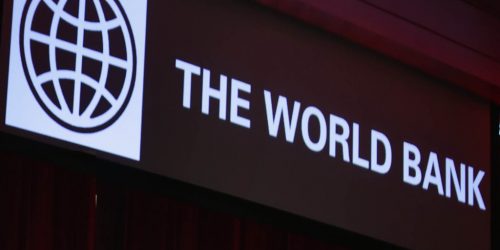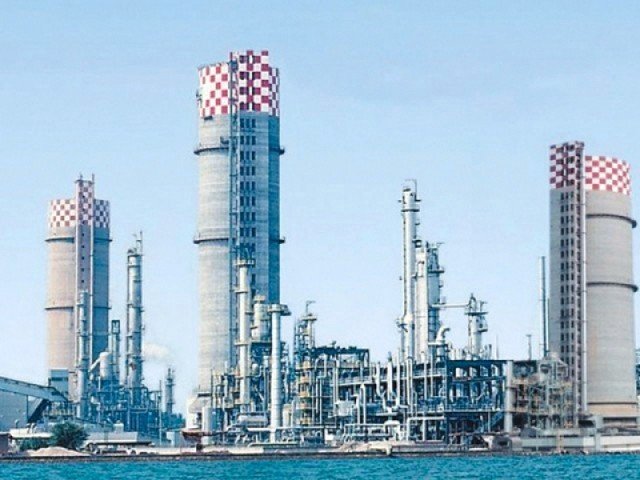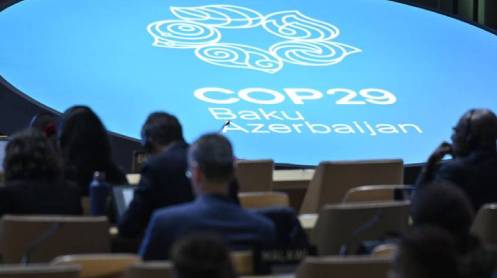The government on Tuesday sought more time from the World Bank to implement its conditions for qualifying for $1.5 billion loans to meet the burgeoning external financing needs, sources told The Express Tribune.
Pakistan is seeking three budget support loans, totalling $1.5 billion, from the World Bank before the end of June, they said, adding that the World Bank had set May 10th deadline to implement the conditions for the loans approval.
Finance Ministry officials said that Finance Minister Shaukat Tarin held a virtual meeting with Axel van Trotsenburg, the managing director (operations) of the World Bank, to review the status of the three under consideration loans.
Though, a finance ministry handout about the meeting did not mention discussions on the $1.5 billion loans, the officials said that the WB had set the May 10 deadline for implementing all the conditions before the approval of the loans from its board of directors in the last week of June.
The most challenging conditions were related to increase in electricity tariffs, which the government at this point in time was reluctant to implement after already jacking up the prices twice in December and February.
The officials said that the minister told the managing director that the government’s was trying to achieve the deadline. Some of the conditions that will remain unimplemented by the deadline will be achieved before the loan approval request is taken up by the WB board, said the officials.
“The Finance Minister reiterated the firm commitment of the government in undertaking reforms to achieve macroeconomic stability, build fiscal resilience and stimulate economic recovery amid Covid-19 and in post-Covid scenario,” read the handout.
The ministry handout also quoted Tarin as saying that the World Bank had always been a source of support in pursuing reform agenda and implementing various development projects for the country. He also highlighted measures to be taken for effective resource mobilisation, enhancing productivity and strengthening financial management in the future, the ministry added.
The $1.5 billion loans are part of the overall $27 billion external financing requirement for the current fiscal year, according to the finance ministry sources.
The government has requested the World Bank to provide $500 million each under the Resilient Institutions for Sustainable Economy (RISE-II), Securing Human Investments to Foster Transformation (SHIFT-II) and Programme for Affordable and Clean Energy (PACE), they added.
Some of the conditions that the World Bank has set are also part of the International Monetary Fund (IMF) programme, which the Fund revived a month ago. To qualify for the loans, Pakistan would have to increase electricity prices by Rs1.39 per unit in June and then Rs2.21 per unit, said a source.
Both of these increases are also part of the IMF structural benchmarks. The government would also have to introduce a new National Electricity Policy, new Least Cost Power Generation Plan and subsidies phase-out plan.
The sources said that for $500 million RISE loan, the World Bank has set condition that provincial governments issue a notification, adopting the Federal Board of Revenue (FBR) valuation tables to the Urban Immovable Property Taxes to keep the assessment ratio at 85% of market value.
Signing of performance contracts with the board and management of all power sector companies is also part of the RISE loan condition.
There is also a condition that the federal and provincial finance departments should implement regulations, following the approval of common GST laws passed by the federal and provincial assemblies to generate a harmonised GST on goods and services across the country.
According to yet another condition, the finance division would convert all bearer prize bonds into registered instruments, through biometric identity verification; and the SECP will issue a notification on the establishment of secured transactions collateral registry to enhance SME access to finance.
For securing $500 million SHIFT loan, the provincial cabinets are required to approve a mechanism for a nationwide harmonisation of birth and death registration with the national civil registry at the National Database and Registration Authority (NADRA).
The ministry of finance and the provincial finance departments will also have to approve the inclusion of all remaining capital costs under the respective expanded programme on immunisation into the recurrent budget.
Some of the IMF programme conditions like elimination of non-standard preferential rates and tax exemptions, and bringing those goods to the standard rate of 17% are also part of the World Bank’s conditions for $1.5 billion lending.
The government will now hold an internal meeting to review the timelines for implementing all these conditions.
The PTI government’s dependence on the external loans has further increased due to growing external loan repayments that have crossed $10 billion a year. The country is paying interest on foreign loans by taking new foreign loans.
The finance ministry said that Energy Minister Hammad Azhar briefed the World Bank managing director about the ongoing efforts in the energy sector to bring efficiency into the system by eliminating inefficient power plants to improve service delivery.
Special Assistant to Prime Minister (SAPM) on Power Tabish Gauhar underlined the reforms introduced in the power sector to make it dynamic and sustainable. He reiterated the government’s firm resolve in achieving efficiency in production as well as transmission of electricity.
Gohar urged the World Bank managing director to appreciate the tough decisions that Pakistan has already taken.
Van Trotsenburg reiterated support for overcoming challenges in the energy sector and lauded the socio-economic coverage extended to the marginalised sections of the society during coronavirus pandemic, said the finance ministry.
He re-affirmed Bank’s commitment to continue support for the implementation of structural reforms in future on the occasion, it added.





